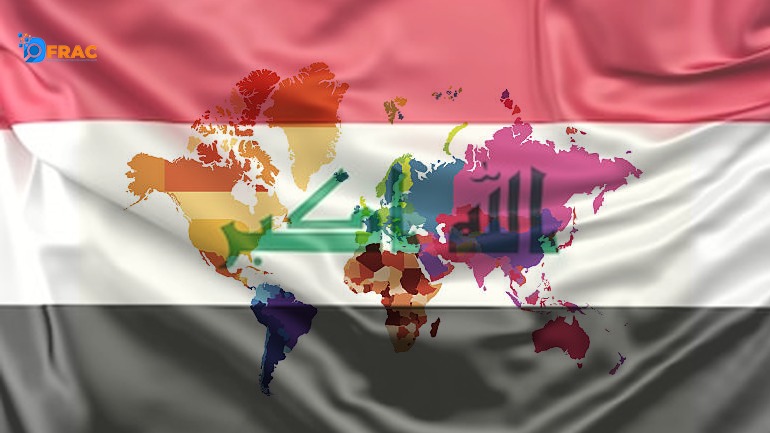Mohd Fahad
The hijab controversy in Iran is intensifying with every passing day. The agitation that started after the death of 22-year-old Kurdish Woman Mahsa Amini, who was detained by the Moral Police on September 13, has turned fierce. Now a video has surfaced, in which the sister of an Iranian man killed in violence during the anti-hijab movement is seen cutting his hair on her brother’s grave.
More than 41 people have been killed in anti-hijab protests in Iran. More than 700 have been arrested so far. Meanwhile, a video showing the burial of Iranian civilian Jawad Hydari, who was killed in the violence, is going viral. In this, Haidari’s sister is seen protesting against the Iranian government’s hijab policy by cutting her hair at the tomb of her brother.
In the video, women saddened by Hydari’s death are seen offering flowers to his grave. While Hydari’s sister cuts her hair, mourning over a flower-covered tomb, mournful women stand behind her. Regarding this video, Iranian journalist and activist Masih Alinejad said that Iranian women are expressing grief and outrage by cutting their hair.
On the other hand, there is a worldwide protest against the death of Amini in the custody of the Moral Police, three days after her arrest on September 16. Hundreds of Iranian women are taking to the streets to publicly cut their hair, protesting the government’s mandatory hijab policy in a unique way. Amini was going somewhere with her family by car, during which time the hijab of Mehsa and other women sitting inside her car was checked. Mehsa was taken into custody for not wearing the hijab properly. Thereafter, she allegedly died in police custody. However, Iran’s Moral Police claims that she died of a heart attack. Iran is being condemned all over the world following the protests.
Several Countries have imposed bans on the hijab–
France is the first country in the western countries, which banned the wearing of hijab in its country. The then President of France Nicolas Sarkozy implemented the rule. Due to this, he had to face tremendous opposition in France and beyond. Under this, no woman can go outside the house with her full face covered. There is also a provision for a fine for the violation of the rule. The French government believes that the purdah is nothing less than atrocities against women. A fine of 150 euros has been fixed for violating this rule. If someone forces a woman to cover her face, then there is a provision of a fine of 30 thousand euros on her. Belgium is also a country that has banned the wearing of the niqab in its country. Belgium banned full face coverings in July 2011. Under the new law, there was a ban on any such dress in public places that do not allow the identity of the wearer to be revealed. However, a petition was filed against this law in Belgium as well, but it was rejected by the court saying that it did not violate human rights. The wearing of the Islamic niqab in schools and hospitals is prohibited in the Netherlands. Apart from this, he supported the ban on Islamic masks covering the full face while traveling on public transport. In June 2018, the Parliament of the Netherlands passed a bill to cover the face, after which it turned into a law. Wearing the burqa is banned in some cities of Italy. This rule is especially applicable in the cities of Novara and Lombardy. However, this rule does not apply to the whole of Italy. Former German Chancellor Angela Merkel was also in favor of implementing the burqa restrictions. She believed that purdah should be banned. However, there is currently no such law in Germany. Germany has approved a partial ban for judges, soldiers, and government employees.
Partial face coverings have also been banned in Austria, Norway, and Spain. In October 2017, face coverings were banned in Austria in public places such as schools and courts. In Norway, a law passed in 2018 prohibits the wearing of face coverings in educational institutions. In Spain in 2010, its city of Barcelona announced a ban on full-face Islamic masks in some public places such as municipal offices, markets, and libraries.
Demonstrations in France, arrests in London–
On the other hand, a demonstration was also held in Paris, the capital of France, against the mandatory hijab in Iran. During this, there was a clash between the police and the protesters. Police had to use tear gas to stop hundreds of people marching toward the Iranian embassy in Paris. The anti-riot force controlled the situation. Meanwhile, police in London arrested several people, marching toward the Iranian embassy.
UN expresses concern–
Ravina Shamdasani, the spokeswoman for the Office of the UN High Commissioner for Human Rights, told reporters in Geneva that she was deeply concerned about the continuing violent response to the demonstrations and the communication restrictions that have affected phones, the Internet, and social media. Amini had fainted shortly after being taken to a prisoner’s center before slipping into a coma. Shamdasani said the Iranian government had so far failed to launch a proper investigation into the circumstances of Mahsa Amini’s death. The spokesman said Iran’s state media had put the death toll at 41 as of Saturday. However, NGOs closely monitoring the situation have put the death toll much higher, including women and children. Along with this, hundreds of people have also been injured in at least 11 provinces.
Shamdasani said, “We are deeply concerned at the comments of some leaders who have used abusive words about the protesters, and possibly unnecessarily and excessive force against the protesters.”
She said, “Just to disperse the gathering of people, lethal weapons should never be used. Such weapons should be used in the context of public meetings only in cases where there is an immediate danger to life or risk of serious injury. We are concerned that disruptions to communication services are making it difficult for people to exchange information, continue economic activities and access public services”.
“This disruption undermines a number of human rights, most notably the right to freedom of expression. We urge the authorities to restore internet services completely,” she added.
The Office of the UN High Commissioner for Human Rights has also expressed serious concern over the practice of impunity for continuing human rights violations in Iran. These include cases of deaths due to the use of deadly force on protesters by security forces in November 2019, July 2021, and May 2022.
“Our office calls on the Iranian authorities to fully respect the right to freedom of expression, to hold peaceful meetings, and to form associations, as Iran is a member of the International Treaty on Civil and Political Rights,” Shamdasani said.





